All Stories
-
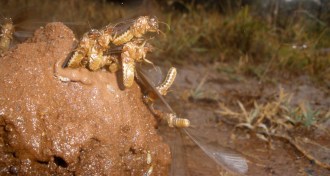 Ecosystems
EcosystemsTermite mound paradises help buffer dry land against climate change
Landscapes dotted by Africa’s great termite mounds look on the verge of turning into desert but are, in fact, more resilient.
By Susan Milius -
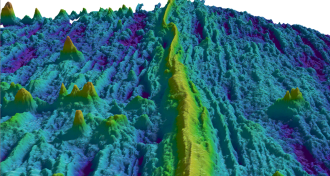 Earth
EarthIce ages boost production of new ocean crust
When sea levels drop during ice ages, magma at mid-ocean ridges surges.
-
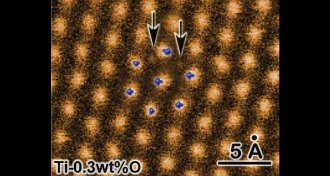 Materials Science
Materials ScienceOxygen sneaks into titanium, making it brittle
Oxygen atoms trigger defects in titanium’s atomic structure, making the metal brittle.
By Beth Mole -
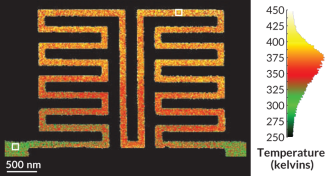 Physics
PhysicsTemperatures taken in the realm of the tiny
Aluminum and other materials can serve as their own thermometers at nanometer scales, opening up the possibility of taking the temperature of tiny computer transistors.
By Andrew Grant -
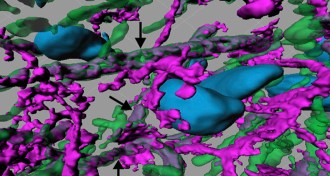 Neuroscience
NeuroscienceShots of brain cells restore learning, memory in rats
Scientists healed damage caused to rats’ brains from radiation by injecting cells that replenish the insulation on neurons.
-
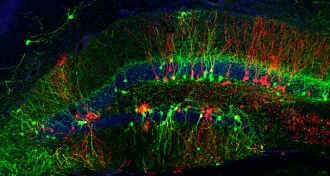 Neuroscience
NeuroscienceWith good timing, experiences can rewire old brains
New experiences can rewire old brains — but the timing has to be just right.
-
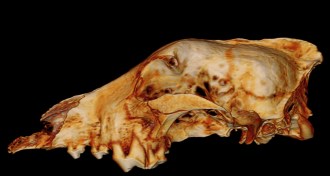 Paleontology
PaleontologyAncient wolf skulls challenge dog domestication timeline
A 3-D analysis of two ancient canine skulls from Russia and Belgium suggests the fossils were of wolves, not dogs.
-
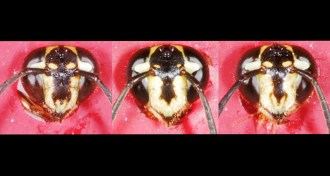 Animals
AnimalsTropical wasps memorize friendly faces
A social wasp species uses sight and smell to keep intruders from hijacking their nests.
-
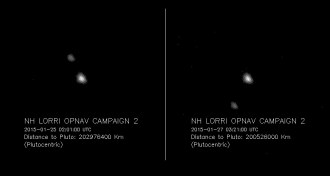 Planetary Science
Planetary ScienceNew Horizons snaps new photos of Pluto
Pluto and its moon Charon appear as two smudges in the first pictures taken since New Horizons came out of hibernation.
-
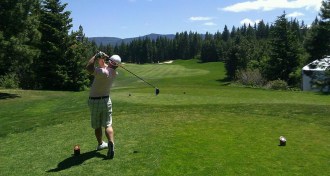 Neuroscience
NeuroscienceHow the brain sees follow-through
The follow-through on your golf swing is more than just a way to use up extra energy. It’s part of how your brain “sees” a movement.
-
 Health & Medicine
Health & MedicineHandheld device turns smartphone into diagnostic tool
A compact device can process a blood sample to diagnose HIV or syphilis when attached to a smartphone.
By Nathan Seppa -
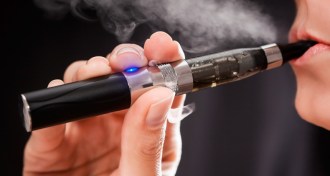 Health & Medicine
Health & MedicineE-cigarettes lower immunity to flu and other germs
Electronic cigarettes produce substantial amounts of lung inflammation, a new mouse study finds. They may also reduce the ability to fight off infections from strep and flu germs.
By Janet Raloff